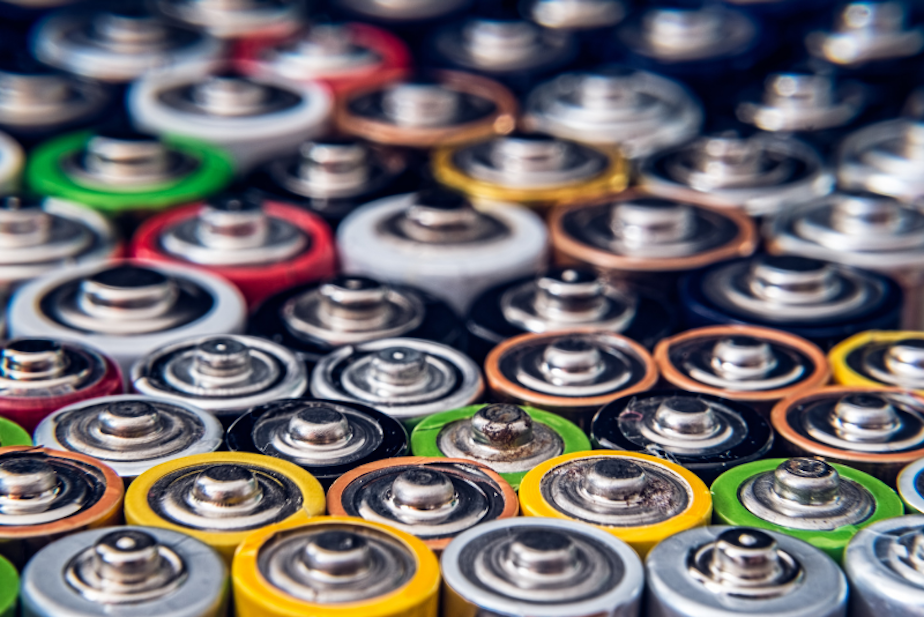What to do with all the batteries that Seattle has banned from your garbage?

The moment 2024 began, a new battery ban kicked in for Seattle residents. Batteries, and certain electronics, are no longer allowed in Seattle's garbage bins or dumpsters.
"We are seeing an increased number of batteries in everyday products; that means we are seeing more of them in the garbage," said McKenna Morrigan, a policy advisor with Seattle Public Utilities' solid waste division.
RELATED: Seattle to get garbage hauler to take down misleading green ads
"We're seeing an increase in incidents of batteries causing fires, both in collection vehicles and at our transfer stations, and that poses a risk to our staff and facilities."
Morrigan notes that all batteries contain materials that are harmful to the environment when they are damaged or discarded, but she singles out lithium-ion batteries as the most dangerous when it comes to fire potential. Lithium-ion batteries are common in rechargeable devices. If you plug a device into a wall to recharge, it likely has a lithium-ion battery. She says cities across the USA are now developing programs to deal with them.
Sponsored
Lithium-ion batteries have prompted concern over their fire-starting potential in recent years. You may have noticed airlines asking you if you have any such batteries in your luggage. In 2018, lithium-ion batteries were blamed for igniting a massive fire at a Tacoma scrapyard. The batteries were under 50 feet of scrap and spontaneously combusted.
Seattle's ban goes beyond batteries, and also includes certain electronics, such as TVs, computers, and monitors.
Throwing away batteries in Seattle
If a garbage hauler notices batteries in a trash bin or a dumpster, they will now place a tag on the bin, asking the customer to remove the offending batteries. The bin will not be taken that day. The same goes for forbidden electronics, such as TVs or computer monitors.
Sponsored
Morrigan admits, however, that Seattle's garbage collectors can't dig through trash bins to inspect for batteries. If batteries are thrown into black garbage bags, they will be out of view. (Also, Seattle lost a legal battle in 2016 over a previous trash program that had garbage collectors monitoring trash cans for food waste. A judge determined that such inspections were unconstitutional.)
"There is not much we can do about them once they are in the garbage, but they can pose a very serious safety risk," Morrigan said. "That's why we're asking our customers to help us address this issue by keeping batteries out of the garbage. We're really counting on our customers to participate in keeping our staff and community safe."
What to do about all these batteries and electronics in Seattle
The easiest way for Seattleites to get rid of batteries, according to Seattle Public Utilities, is to schedule a pickup for special items. Seattle's special items pickup program can haul away a variety of materials, including batteries. For $5, customers can schedule to have up to two 1-gallon bags filled with batteries picked up.
"As long as the batteries aren't damaged at all, it's fine to save up so you have a collection of batteries. If you have any batteries that are corroded or leaking or damaged in any way, the best thing to do is to get those batteries collected right away."
Sponsored
Options for disposing batteries and electronics:
- Seattle's special items pickup program.
- There are two waste transfer stations that can take batteries and electronics: North location in Seattle's Wallingford neighborhood, and a south location near the First Avenue South Bridge.
- There are two hazardous waste facilities in Seattle: One near the border with Shoreline, and another near the south transfer station.
- E-Cycle Washington is a free electronics disposal program with multiple collection sites in Seattle.
- Private companies like Ridwell have battery pickup services.
- Call2Recycle can collect some, but not all, battery types.
Morrigan also notes that state lawmakers approved a new law in Washington last year, which requires battery manufacturers to create statewide battery collection programs. Those programs are slated to start in 2027.
John O'Brien contributed to this report.




